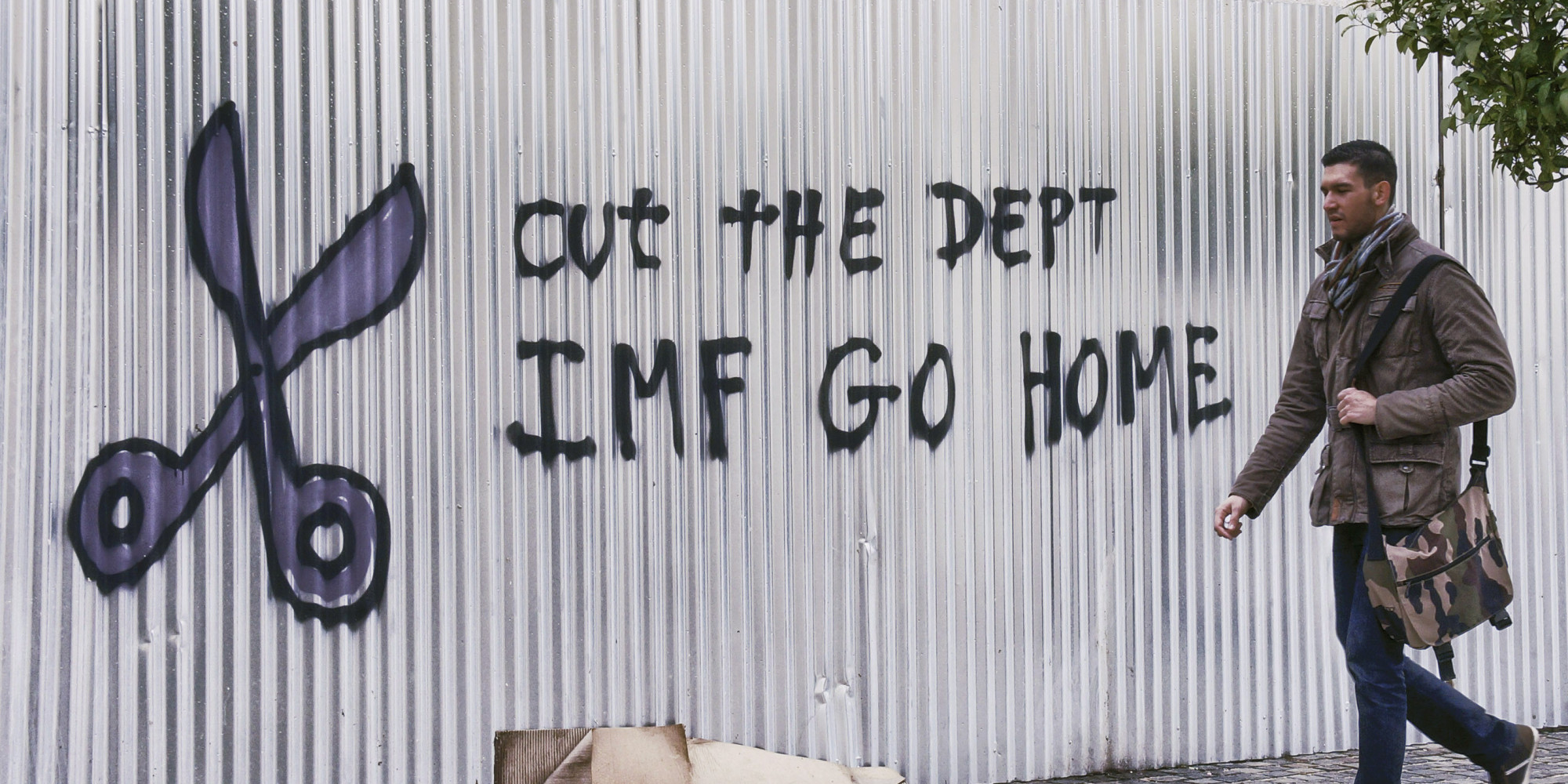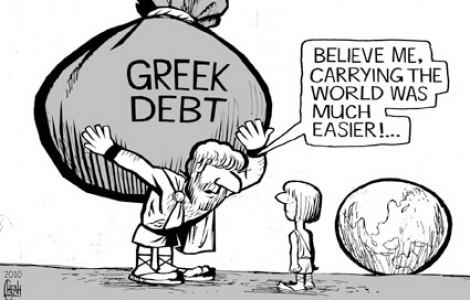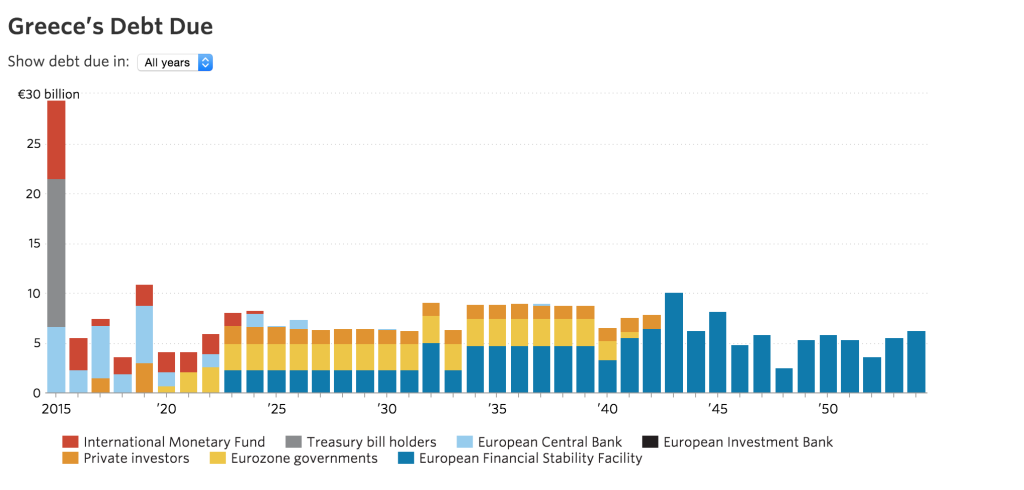
Who would have thought that six years after the global financial crisis, most advanced economies would still be swimming in an alphabet soup – ZIRP, QE, CE, FG, NDR, and U-FX Int – of unconventional monetary policies? No central bank had considered any of these measures (zero interest rate policy, quantitative easing, credit easing, forward guidance, negative deposit rate, and unlimited foreign exchange intervention, respectively) before 2008. Today, they have become a staple of policymakers’ toolkits.
Indeed, just in the last year and a half, the European Central Bank adopted its own version of FG, then moved to ZIRP, and then embraced CE, before deciding to try NDR. In January, it fully adopted QE. Indeed, by now the Fed, the Bank of England, the Bank of Japan, the ECB, and a variety of smaller advanced economies’ central banks, such as the Swiss National Bank, have all relied on such unconventional policies.
One result of this global monetary-policy activism has been a rebellion among pseudo-economists and market hacks in recent years. This assortment of “Austrian” economists, radical monetarists, gold bugs, and Bitcoin fanatics has repeatedly warned that such a massive increase in global liquidity would lead to hyperinflation, the US dollar’s collapse, sky-high gold prices, and the eventual demise of fiat currencies at the hands of digital krypto-currency counterparts.
None of these dire predictions has been borne out by events. Inflation is low and falling in almost all advanced economies; indeed, all advanced-economy central banks are failing to achieve their mandate – explicit or implicit – of 2% inflation, and some are struggling to avoid deflation. Moreover, the value of the dollar has been soaring against the yen, euro, and most emerging-market currencies. Gold prices since the fall of 2013 have tumbled from $1,900 per ounce to around $1,200. And Bitcoin was the world’s worst-performing currency in 2014, its value falling by almost 60%.
To be sure, most of the doomsayers have barely any knowledge of basic economics. But that has not stopped their views from informing the public debate. So it is worth asking why their predictions have been so spectacularly wrong.
The root of their error lies in their confusion of cause and effect. The reason why central banks have increasingly embraced unconventional monetary policies is that the post-2008 recovery has been extremely anemic. Such policies have been needed to counter the deflationary pressures caused by the need for painful deleveraging in the wake of large buildups of public and private debt.
In most advanced economies, for example, there is still a very large output gap, with output and demand well below potential; thus, firms have limited pricing power. There is considerable slack in labor markets as well: Too many unemployed workers are chasing too few available jobs, while trade and globalization, together with labor-saving technological innovations, are increasingly squeezing workers’ jobs and incomes, placing a further drag on demand.
Moreover, there is still slack in real-estate markets where booms went bust (the United States, the United Kingdom, Spain, Ireland, Iceland, and Dubai). And bubbles in other markets (for example, China, Hong Kong, Singapore, Canada, Switzerland, France, Sweden, Norway, Australia, New Zealand) pose a new risk, as their collapse would drag down home prices.
Commodity markets, too, have become a source of disinflationary pressure. North America’s shale-energy revolution has weakened oil and gas prices, while China’s slowdown has undermined demand for a broad range of commodities, including iron ore, copper, and other industrial metals, all of which are in greater supply after years of high prices stimulated investments in new capacity.
China’s slowdown, coming after years of over-investment in real estate and infrastructure, is also causing a global glut of manufactured and industrial goods. With domestic demand in these sectors now contracting sharply, the excess capacity in China’s steel and cement sectors – to cite just two examples – is fueling further deflationary pressure in global industrial markets.
Rising income inequality, by redistributing income from those who spend more to those who save more, has exacerbated the demand shortfall. So has the asymmetric adjustment between over-saving creditor economies that face no market pressure to spend more, and over-spending debtor economies that do face market pressure and have been forced to save more.
Simply put, we live in a world in which there is too much supply and too little demand. The result is persistent disinflationary, if not deflationary, pressure, despite aggressive monetary easing.
The inability of unconventional monetary policies to prevent outright deflation partly reflects the fact that such policies seek to weaken the currency, thereby improving net exports and increasing inflation. This, however, is a zero-sum game that merely exports deflation and recession to other economies.
Perhaps more important has been a profound mismatch with fiscal policy. To be effective, monetary stimulus needs to be accompanied by temporary fiscal stimulus, which is now lacking in all major economies. Indeed, the eurozone, the UK, the US, and Japan are all pursuing varying degrees of fiscal austerity and consolidation.
Even the International Monetary Fund has correctly pointed out that part of the solution for a world with too much supply and too little demand needs to be public investment in infrastructure, which is lacking – or crumbling – in most advanced economies and emerging markets (with the exception of China). With long-term interest rates close to zero in most advanced economies (and in some cases even negative), the case for infrastructure spending is indeed compelling. But a variety of political constraints – particularly the fact that fiscally strapped economies slash capital spending before cutting public-sector wages, subsidies, and other current spending – are holding back the needed infrastructure boom.
All of this adds up to a recipe for continued slow growth, secular stagnation, disinflation, and even deflation. That is why, in the absence of appropriate fiscal policies to address insufficient aggregate demand, unconventional monetary policies will remain a central feature of the macroeconomic landscape.
Read more at http://www.project-syndicate.org/commentary/unconventional-monetary-policies-and-fiscal-stimulus-by-nouriel-roubini-2015-02
Related Posts
78
Here’s what to look for from the Federal Reserve Bank of Kansas City’s annual economic symposium in Jackson Hole,Wyoming, which runs Aug. 21-23. -- Yellen’s keynote: The highlight will be Fed Chair Janet Yellen’s speech Aug. 22 on labor markets at 10 a.m. New York time. She’ll probably reiterate the Fed’s view…
Tags: fed, bank, market, ecb, global, central
76
Very low inflation poses a mounting threat to the economic stability of the eurozone. The rate of consumer price inflation has been below 1 per cent since October, and hence far below the European Central Bank’s (ECB) target of just below 2 per cent. This highlights the degree of weakness…
Tags: inflation, ecb, easing, unconventional, monetary, demand, central, bank, fed
71
Mario Draghi has set the bar high for the European Central Bank’s next meeting Thursday. The bank president’s warning about reduced inflation expectations, made in a speech on Aug. 22, fanned hopes that the ECB may announce additional stimulus measures to boost economic growth and prices. A report Friday showing…
Tags: ecb, bank, inflation, deflation, banks, easing, central, prices
71
Runners have target times, golfers judge themselves by their swing, while Mario Draghi watches a technical measure of inflation expectations used by financial markets. Just one problem: it suggests the European Central Bank president is not achieving his objective – and that markets’ fears of eurozone deflation are mounting. Since…
Tags: inflation, central, markets, ecb, years, deflation, global, prices, bank
69
Though ECB cut was covered by the Press in great details but only a few analyzed the results of such measure. Only independent writer/economists talked about the potential losers and winners of the situation. In this article featured in The Telegraph , an economic writer talks about critiques the actions of…
Tags: ecb, global, bank, central










